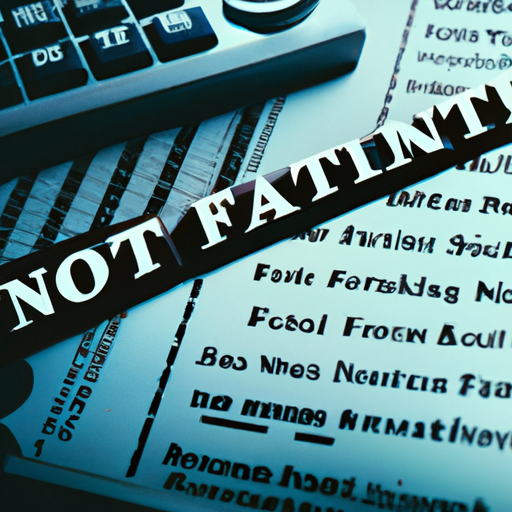UK chancellor Rishi Sunak has delivered an array of new budget announcements against a backdrop of soaring household energy bills and fuel prices.
The chancellor had reportedly wanted to restrict this “spring statement” to economic forecasts and broad ideas for tax changes, leaving major announcements for the autumn budget.
However, the Treasury has been under growing pressure to deal with the fallout from Russia’s invasion of Ukraine and the wider global energy crisis.
Early in his speech to parliament, the chancellor laid out a handful of measures that he said would help to alleviate these issues for British people, including reduced taxes on vehicle fuel, home insulation and solar panel installation.
As the government prepares a broader energy security strategy – reportedly due to be delivered next week – some factions of the Conservative party have been using the energy crisis as an excuse to push back against the UK’s net-zero target.
For his part, Sunak is widely seen as lukewarm on climate action, but in recent speeches and press statements the government has broadly supported low-carbon measures as a pathway to energy independence in the current crisis.
Nevertheless, climate change is not a priority in the spring statement, with “net-zero” mentioned just once in the -page document, and “climate” mentioned three times.
Below, Carbon Brief summarises all the key climate and energy announcements from today’s budget:
The Treasury notes that “global energy prices were volatile even before Putin’s invasion of Ukraine and remain much higher than pre-pandemic levels”, leading to a significant increase in the cost of living.
It attributes this to a range of factors including rising global demand for energy, supply disruptions in oil-exporting economies, weather patterns affecting the supply of renewable energy and heating demand, and lower gas storage balances.
More than % of the increase in household energy bills is due to high wholesale gas prices, with another % or so due to the cost of resulting supplier failure.
Prices have risen even further “amid disruptions to the supply of Russian energy to global markets,” it adds.
Between mid-February and mid-March, global oil prices rose % and UK and European wholesale gas prices increased by more than %.
The Treasury notes that while the existing price cap by energy regulator Ofgem is protecting consumers from rises in wholesale energy, petrol pump prices are at record highs after increasing by around % over the past month.
While the government has already announced some measures to help households with energy bills and includes more in the spring statement, it says that:
“The best way to support households in the long run is through encouraging strong and sustainable growth across the UK, by promoting investment and innovation; and then sharing more of the proceeds of growth by reducing the tax burden for working people.”
The Treasury also references the upcoming government energy security plan, which it says will build on existing net-zero plans while “raising its delivery ambitions across energy technologies to end the UK’s dependency on hydrocarbons from Russia”. It notes that this will entail “measures across hydrocarbons, nuclear and renewables”.
One policy that is notable for its absence from the spring statement is a windfall tax on oil-and-gas companies, which have profited enormously from spiking global fossil fuel prices. Ahead of today’s spring statement, firms were reportedly confident that the Treasury would not target their profits, on the understanding that they would instead step up their investment in domestic UK oil and gas fields.
The opposition Labour Party is among those to have called for such a tax – and its absence was the first criticism shadow chancellor Rachel Reeves levelled at Sunak in her response to his speech.
A widely anticipated measure was the reduction in fuel duty applied to petrol and diesel, which Sunak had trailed heavily in interviews ahead of his speech.
The Treasury says there will be a temporary cut of p per litre of petrol and diesel for months, taking effect from pm on the day of the announcement. This brings fuel duty, which has remained static since , down to p per litre.
The chart below shows the past and future trajectory of fuel duty red, assuming the levy is increased in line with inflation from next April. In practice, the Treasury has repeatedly frozen planned inflationary increases at every budget since blue lines.
The past and currently planned rate of fuel duty, in pence per litre not adjusted for inflation, since thick red line. Previously planned inflationary increases, cancelled at successive budget statements over the period, are shown in shades of blue. Note the truncated y-axis. Office for Budget Responsibility and Department for Business, Energy and Industrial Strategy. Chart by Carbon Brief using Highcharts.
This cut in fuel duty will not be enough to cancel out the recent increases in fuel costs, which have risen by roughly -p since spring .
The government nevertheless says it marks the “largest cash-terms cut across all fuel duty rates at once ever” and only the second time that such a cut has taken place in years.
Treasury analysis suggests that this represents savings of £ for the average car driver, £ for a van and £, for a lorry. However, this is based on a scenario in which fuel duty increases in -, which it has not done for years.
In total, this cut will amount to savings of £.bn for households and businesses over the next year, the government says.
Prior to this, fuel duty has remained at a rate of p per litre, plus VAT, since . This trend has seen consistent, vocal support from lobbyists and sections of the press, and is clearly a point of pride for Sunak who declared in a Sky News interview recently that “we are the party who has frozen fuel duty for over a decade”.
However, this policy has faced criticism because it disproportionately benefits the rich and runs counter to energy security and the UK’s climate goals. Carbon Brief analysis in suggested that the UK’s CO emissions were as much as % higher than they would have been due to the decade-long freeze on fuel duty.
Others have pointed out that while keeping fuel duty low is seen as a popular measure to benefit ordinary people, these measures are in fact regressive.
Analysis by the NGO Transport & Environment found that across Europe not including the UK, the richest motorists would receive eight times more public money from fuel duty cuts than the poorest, as they spend so much more on fuel.
In a similar vein, Ryan Shorthouse of conservative environmental thinktank Bright Blue pointed out that repeated fuel duty freezes amounted to a cut in real terms, adding that there are better ways to support struggling households.
In a statement responding to the Treasury’s announcement, Stuart Adam, a senior economist at the Institute for Fiscal Studies IFS, said:
“As long as it is genuinely temporary, the environmental and fiscal costs are bearable. But history suggests it would not be a surprise if the chancellor failed to restore fuel duties next year to their previously planned level.”
He added that If the lower level is kept next year, it would leave the duty rate in – a third lower than if it had kept pace with inflation over the past decade, costing the government £bn a year.
Last year, the Treasury indicated that there may be future increases in fuel duty, stating that the rate would be “considered in the context of the UK’s commitment to reach net-zero emissions by ”. There also remains a question mark over how fuel duty will be replaced as the nation transitions away from fossil fuels to electric vehicles.
The second key energy-related measure announced by the chancellor was a reduction in the VAT paid by people when having insulation and low-carbon technologies installed in their homes.
Sunak told parliament that “as energy costs rise, we know that energy efficiency will make a big difference to bills” and the budget document also notes that such measures will support “the UK’s long-term net-zero ambitions”.
The chancellor said that prior to this, only some materials qualified for a % VAT relief and “there are complex rules about who is eligible”, a situation he blamed on a European Court of Justice decision.
Get a Daily or Weekly round-up of all the important articles and papers selected by Carbon Brief by email. By entering your email address you agree for your data to be handled in accordance with our Privacy Policy.
Therefore, he said that over the next five years households will pay % VAT on solar panels, heat pumps and insulation, as well as wind and water turbines, which were previously out of scope under EU rules.
The Treasury clarified that this % VAT applies both to the materials used and the cost of installation. It also noted that Northern Ireland Executive would receive a Barnett formula share of this relief until it can be introduced UK-wide.
The government states that, as a result of these changes, a typical family having rooftop solar panels installed will save more than £, in total on installation, as well as £ annually on their energy bills.
Commentators pointed out that while such savings are welcome, they will not help those who are immediately affected by the rising cost of living.
It is worth noting that while the Treasury document states that the government “has committed to spend over £.bn on decarbonising buildings” – and the chancellor alluded to “red tape imposed on us by the EU” – the Conservatives have consistently failed to scale up energy efficiency measures while they have been in power.
The cost of expanding this VAT relief for energy saving materials is estimated at around £m, rising to £m in -.
Sunak also announced an additional £m for the Household Support Fund, on top of £m that the government has already provided since October .
This fund is designed to help the most vulnerable households with essentials including utilities.
Local authorities, which the chancellor said are “best placed to help those in need in their local areas”, will receive this funding from April.
While this comes on top of pre-existing measures such as the £ energy bill loan, some commentators noted that more would be needed to help households with the expected energy bill increases.
Additional measures announced in the statement included the government bringing forward the implementation of business rate exemptions for on-site renewables and low-carbon heat networks. These will now be implemented in , rather than .
The government describes this action as part of its drive to “support the decarbonisation of non-domestic buildings”.


